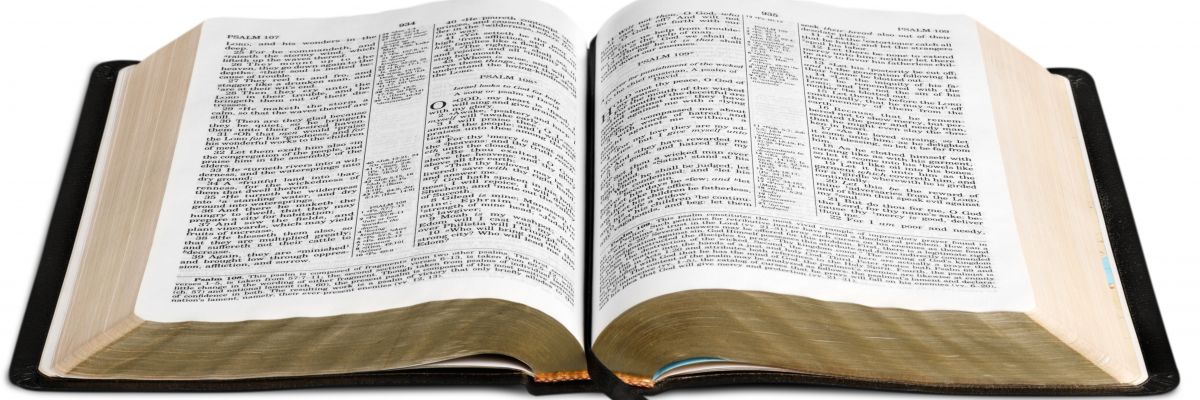
Chances are, much of what you know about “Old English” is entirely wrong. If asked to say something in Old English, many of us would try to make it more formal by peppering in words like thee, thy, and thine. But these aren’t Old English at all.
Old English is more like this: Fæder ūre þū þe eart on heofonum, sī þīn nama ġehālgod. That’s the opening to the Our Father, but you would be forgiven for not knowing that since Old English is virtually unrecognizable without an online translator. “Old English” refers to English as it was spoken and written from about the fifth century to about the thirteenth century. Thee, thy, and thine come later, and we mostly know them from Early Modern English (more specifically, “Elizabethan English”), like the works of Shakespeare (1564-1616), the Catholic Douay-Rheims Bible (1589/1602), and the Anglican King James Bible (1611).
It may seem pedantic to point all of this out, but here’s why I think it matters. We tend to think of thee, thy, and thou as excessively formal. A Reformed writer rightly notes that “Many people, especially of the older generation, have always assumed that the usage of ‘thee/thou’ is purely formal, or even gold-plated formal, and that ‘you’ is informal, or inferior to ‘thee.’” But this gets things entirely backwards.
In Early Modern English there was a distinction between formal and informal address, as you still find in Spanish, French, and Latin. The technical term for this is the T-V distinction:
Most European languages, and many others, have a T-V distinction. The textbooks always give the same advice: the T pronoun is used for friends, family, children and generally intimate situations. V is for elders, to show respect, for strangers, at work, etc.
That article goes on to note that this is changing in many places, including Latin America, as people begin to speak to each other more casually. And it changed in an odd way in English, too. It used to be that if you wanted to address someone formally, you would say use the second-person plural: ye or you. Thee, thine, and thy were actually the familiar form of address. But whereas much of the world today is losing the formal address, English actually lost the informal address, so that we only recall it today in old plays or Biblical texts (which is why we think of it as stodgy and formal).
Other than as a piece of cocktail trivia, why does any of this matter? Because it means modern English conceals the intimacy with which we can speak to God. When older writers translated the Lord’s Prayer, “Our Father, hallowed be thy Name,” they didn’t use “thy” because they wanted to be formal. They used it to show the intimacy with which we can address God as our Father. Saying “holy be your Name” would actually be the colder form of address.
That one line of the Our Father captures the great paradox within our relationship: God is transcendent, but also immanent. On the one hand, God is the ineffably holy Creator of the universe, who reigns in perfect majesty. On the other hand, He is truly our Father, and invites us into an intimate and loving relationship. This paradox is near the heart of Christianity. If God were approachable, but not Almighty, He might be a nice friend, but wouldn’t be able to solve our problems. If He were Almighty but not approachable, we might quake before Him, but we couldn’t truly love Him—at least, not in the way He wants to be loved. In either case, we wouldn’t be able to pray the Our Father, which is an intimate address to an all-powerful God. While “Abba” doesn’t quite mean “Daddy” as many Christians now believe, it was a more colloquial form of address than some of the alternatives. St. Paul speaks of this radical kind of prayer as coming from the Holy Spirit:
For you did not receive the spirit of slavery to fall back into fear, but you have received the spirit of sonship. When we cry, “Abba! Father!” it is the Spirit himself bearing witness with our spirit that we are children of God, and if children, then heirs, heirs of God and fellow heirs with Christ, provided we suffer with him in order that we may also be glorified with him (Rom. 8:15-17).
It’s for this reason that the Mass should be at once accessible and transcendent, inviting but always reaching beyond our grasp. And if you think about it, this paradox probably speaks to why worshippers tend to opt for a whole special mode of addressing God. The Jews used (and use) languages like Yiddish for regular conversation, and Hebrew in prayer. Early Christians prayed in Greek, but used Latin for more “vulgar,” or common, speech (which is why, when the Bible was translated into the ordinary language of the people, it was called the Vulgate). Long after Latin ceased being the vulgar tongue, it remained the language of prayer.
Even today, we find Protestants as well as Catholics wanting to address God in Elizabethan English. Why? Because we want our language to express God’s transcendence. And yet at the same time, we’re constantly striving to emphasize that the Bible and the liturgy are also accessible, to express God’s immanence as well.
This paradox can perhaps never fully be resolved. It’s something we will continue to wrestle with, and ought to wrestle with. In giving us the Lord’s Prayer, as with the rest of what he has revealed about our heavenly Father, Christ has invited us into an intimate relationship with the sovereign God of the universe.



